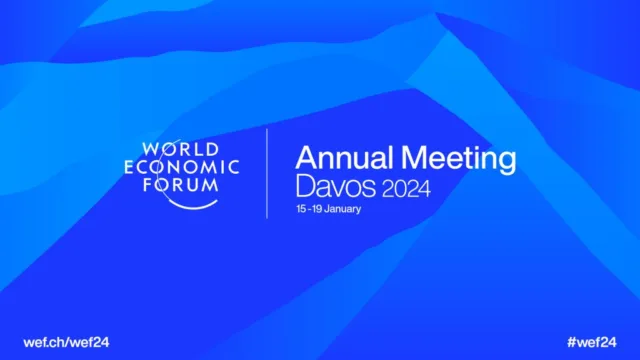The picturesque Alpine ski resort of Davos, Switzerland, is playing host to the 54th Annual Meeting of the World Economic Forum (WEF) from January 15 to 20, 2024. Against the backdrop of rising geopolitical tensions and the spectre of increased inflation due to recent attacks on shipping in the Red Sea, this year’s gathering becomes a crucial platform for global leaders to engage in constructive dialogue and collaborative efforts. The event boasts an impressive assembly of attendees, including approximately 60 heads of state and government, 1,600 business leaders, 300 public figures, and representatives from major international organizations. Civil society leaders, experts, changemakers, entrepreneurs, and academics will also contribute to the diverse and influential crowd.
The WEF has structured the meeting around five critical sub-themes: the energy and food crises, inflation, technology for innovation, social vulnerabilities, and geopolitical risks. Under the overarching theme of ‘Rebuilding Trust,’ the goal is to restore collective agency and reinforce fundamental principles of transparency, consistency, and accountability among leaders. Børge Brende, President of the World Economic Forum, emphasized the urgency for innovative public-private collaboration, stating, “At a time when global challenges require urgent solutions, innovative public-private collaboration is necessary to convert ideas into action.”
The Annual Meeting serves as a catalyst for research, alliances, and frameworks promoting mission-driven cooperation throughout the year. More than 150 global innovators, tech pioneers, and unicorns transforming industries will showcase local innovations and solutions before a distinguished audience of experts from the world’s leading universities, research institutions, and think tanks. A notable feature of this year’s meeting is its accessibility to the wider public, with over 200 sessions live-streamed. These sessions will cover topics such as trade, economic growth, global security, climate and nature action, the energy transition, technological disruption, and health and wellbeing.
Leaders from across the globe are participating in the Davos meeting. Among them are Li Qiang, Premier of the People’s Republic of China; Emmanuel Macron, President of France; Ursula von der Leyen, President of the European Commission; and Ukraine’s Volodymyr Zelenskyy. Notably absent this year is the UK’s Rishi Sunak; however, Labour leader Keir Starmer, Chancellor Jeremy Hunt, and shadow chancellor Rachel Reeves will represent the United Kingdom. Political and business leaders initiated talks at the 54th Annual Meeting, addressing critical issues such as the energy crisis, food security, inflation, technological innovation, social vulnerabilities, and geopolitical risks.
High-Profile Speakers and Discussions
Chinese Premier Li Qiang, President of the European Commission Ursula von der Leyen, Ukrainian President Volodymyr Zelenskyy, and U.N. national security advisor Jake Sullivan are among the high-profile speakers addressing delegates at the Swiss town’s Congress Center.
The official theme, “Rebuilding Trust,” has sparked discussions on a range of topics. U.S. Secretary of State Antony Blinken, speaking about his meeting with President Zelenskyy, highlighted the need for Congress to secure supplemental funding requested by President Biden. He stressed the bipartisan support needed for these funds, emphasizing the potential consequences if not secured. “Look there’s no magic pot of money — if we don’t get that money, it’s a real problem,” Secretary Blinken warned.
As global leaders converge in Davos, the world watches, hopeful for collaborative solutions to the pressing challenges that threaten global stability and prosperity. The outcomes of these discussions and the actions taken in the aftermath of Davos 2024 will undoubtedly shape the course of the world economy and international relations in the years to come.









